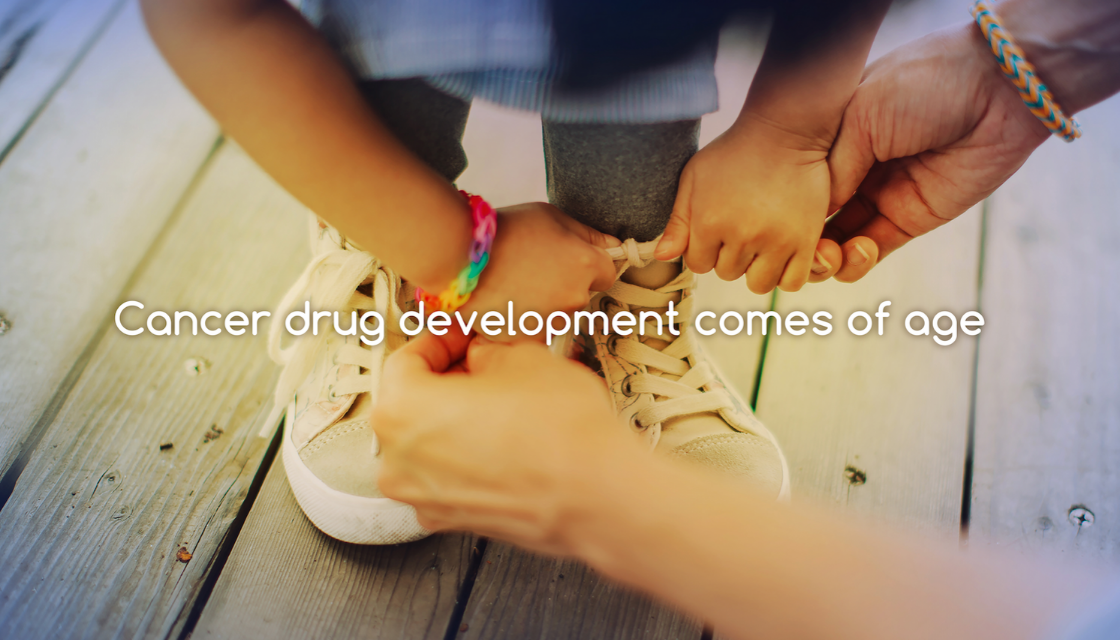Julie Grant is the Co-founder, investor and former CEO of Day One Biopharmaceuticals.
All great companies start with an unmet need and a compelling solution. Often in biotech, the spark is a novel biological insight from a leading academic scientist. For Day One Biopharmaceuticals, the inspiration emerged from an inequity in patient care highlighted by leaders in the pediatric oncology community.
Children have been left behind during a cancer treatment revolution
The data below defines the stark disparities between children and adults with cancer:
1. Over twenty years, the FDA approved over 200 new oncology drugs to treat adults, yet fewer than 10 new drugs have been FDA-approved for children with cancer. (National Pediatric Cancer Foundation, Barone FDA presentation)
2. For children who survive cancer, 95% will have a significant health conditions by the age of 45 as a direct result of toxicities from their treatment. Better medicines are needed. (CureSearch)
3. Cancer drugs approved by the FDA took a median of 6.5 years to go from the first clinical trial in adults to the first trial in children. Children are being left behind. (Dubois et. al, 2019)
4. Insurance coverage is often challenging to obtain for promising treatments when those treatments are approved for adult patients, but not children. For new treatments to be affordable and accessible for children, FDA approval and insurance coverage need to be secured as well.
A purpose-built biotech to accelerate treatments for children with cancer
Universally, there is support for helping pediatric cancer patients. However, there is skepticism that a successful pharmaceutical business model can proactively prioritize this fragile population. Dr. Sam Blackman and I incubated Day One at Canaan as a business solution to bridge this gap and address this moral imperative. Our conclusion was that pediatric cancer is an undervalued and overlooked segment of the $125B oncology pharmaceutical industry. Canaan, Atlas Venture, and Access Biotechnology agreed: they invested $60M in our Series A financing. Key aspects of our strategy are highlighted below.
Develop new medicines faster by addressing unmet needs in a rare disease
When a new medicine shows dramatic benefit in patients with either limited, or no other treatment options, clinical trials can be executed rapidly and the time to FDA approval can be fast. This is especially true when the patient populations are small and easily identified with diagnostic testing. Importantly, a rapid and capital-efficient path to market is open when medicines offer a big impact for patients with limited options. This aligns incentives among patients, doctors, regulators, payers, and investors.
Rare disease pharmaceutical companies leverage this development strategy. They are one of the most productive fields of drug development and venture capital. Pediatric cancer is a rare disease market within oncology. Day One is proactively identifying and acquiring new medicines that can rapidly change the standard of care for children with cancer.
Define market opportunities by tumor molecular mechanisms, not by patient age
Our first licensed product, DAY101 (formerly TAK-580), is an oral, first-in-class, pan-RAF inhibitor. It is expected to be most active in genetically-defined forms of pediatric cancers and certain forms of adult lung, melanoma, and pancreatic cancers. Advances in tumor sequencing enable us to define those who will benefit by their disease, instead of their age. This expands the clinical benefit to more patients and increases the scope of financial returns. Our strategy for DAY101 explores the product’s activity alone, and in combination with other inhibitors across the MAPK pathway, to treat cancers driven by alterations RAS, RAF, and beyond. Our goal is to deliver benefit to the greatest number of patients.
Align incentives with pharmaceutical and academic partners to access high quality treatments
Day One is actively seeking phenomenal partners like we found in Takeda and Sunesis. They are committed to ensuring their products help as many patients as possible by licensing programs that fall outside their current core strategy. Takeda and Sunesis partnered with us on TAK-580, now known as DAY101, because Day One’s approach aligned our incentives to achieve each companies’ missions and business goals. When we successfully develop DAY101, they will share the fulfillment of having saved lives and families, while benefitting financially.
A compelling mission is a competitive advantage
“The Day One Talk” is a name given to the meeting when a family learns that their child is diagnosed with cancer. Day One Biopharmaceuticals is founded with focused, compassionate intent to serve a purpose-driven community. We will urgently bring the best treatments to future Day One talks.
The leaders who choose to join Day One share that strong sense of urgency. They are ingenious and committed to our mission. We need an exceptional community and team to help us succeed. If you are aware of promising treatments that could benefit children, please reach out at partnering@dayonebio.com. If you are ready to join our fast-paced team of experts, look at opportunities here.
Inspired by a community of patient advocates
I want to acknowledge the guidance and input from the hundreds of extraordinary people who helped us over the last two years, especially Dr. Peter Adamson (former Group Chair of the Children’s Oncology Group), Dr. Susan Weiner (Founder, Children’s Cause for Cancer Advocacy), Dr. Gilles Vassal (Institut Gustav Roussy; ACCELERATE), Dr. Andy Pearson (ICR, ACCELERATE), Patricia Blanc (Imagine Margo), Delphine Heenen (KickCancer), Sam Daems (ACCELERATE), Raphael Rousseau (Gritstone Oncology, ACCELERATE), and Jean-Charles van den Branden (KickCancer). For your contributions yesterday, today and tomorrow, we are truly grateful.
In particular, thank you to my co-founder, Dr. Sam Blackman, for being an inspiring leader, dear friend, committed patient advocate and for saying yes to this journey.
.png)